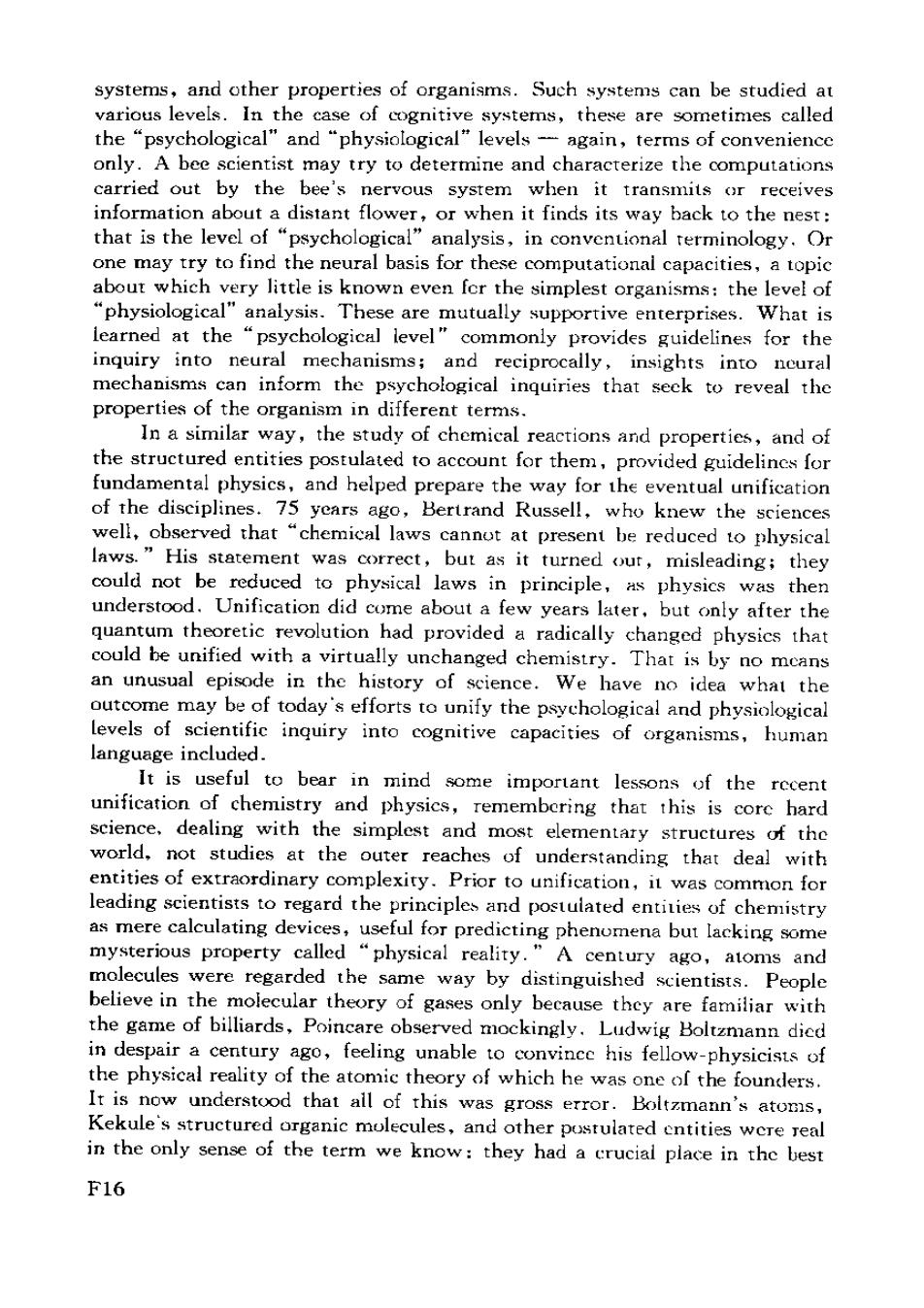正在加载图片...

systems,and other properties of organisms.Such systems can be studied at various levels.In the case of cognitive systems,these are sometimes called the "psychological"and "physiological"levels-again,terms of convenience only.A bee scientist may try to determine and characterize the computations carried out by the bee's nervous system when it transmits or receives information about a distant flower,or when it finds its way back to the nest: that is the level of "psychological"analysis,in conventional terminology.Or one may try to find the neural basis for these computational capacities,a topic about which very little is known even fcr the simplest organisms:the level of "physiological"analysis.These are mutually supportive enterprises.What is learned at the "psychological level"commonly provides guidelines for the inquiry into neural mechanisms;and reciprocally,insights into ncural mechanisms can inform the psychological inquiries that seck to reveal the properties of the organism in different terms. In a similar way,the study of chemical reactions and properties,and of the structured entities postulated to account for them,provided guidelines for fundamental physics,and helped prepare the way for the eventual unification of the disciplines.75 years ago,Bertrand Russell,who knew the sciences well,observed that "chemical laws cannot at present be reduced to physical laws.His statement was correct,but as it turned out,misleading;they could not be reduced to physical laws in principle,as physics was then understood.Unification did come about a few years later,but only after the quantum theoretic revolution had provided a radically changed physics that could be unified with a virtually unchanged chemistry.That is by no mcans an unusual episode in the history of science.We have no idea what the outcome may be of today's efforts to unify the psychological and physiological levels of scientific inquiry into cognitive capacities of organisms,human language included. It is useful to bear in mind some important lessons of the recent unification of chemistry and physics,remembering that this is core hard science,dealing with the simplest and most elementary structures of the world,not studies at the outer reaches of understanding that deal with entities of extraordinary complexity.Prior to unification,it was common for leading scientists to regard the principles and postulated entilies of chemistry as mere calculating devices,useful for predicting phenomena but lacking some mysterious property called "physical reality."A century ago,atoms and molecules were regarded the same way by distinguished scientists.People believe in the molecular theory of gases only because they are familiar with the game of billiards,Poincare observed mockingly.Ludwig Boltzmann died in despair a century ago,feeling unable to convince his fellow-physicists of the physical reality of the atomic theory of which he was one of the founders. It is now understood that all of this was gross error.Boltzmann's atoms, Kekule's structured organic molecules,and other postulated cntities were real in the only sense of the term we know:they had a crucial place in the best F16